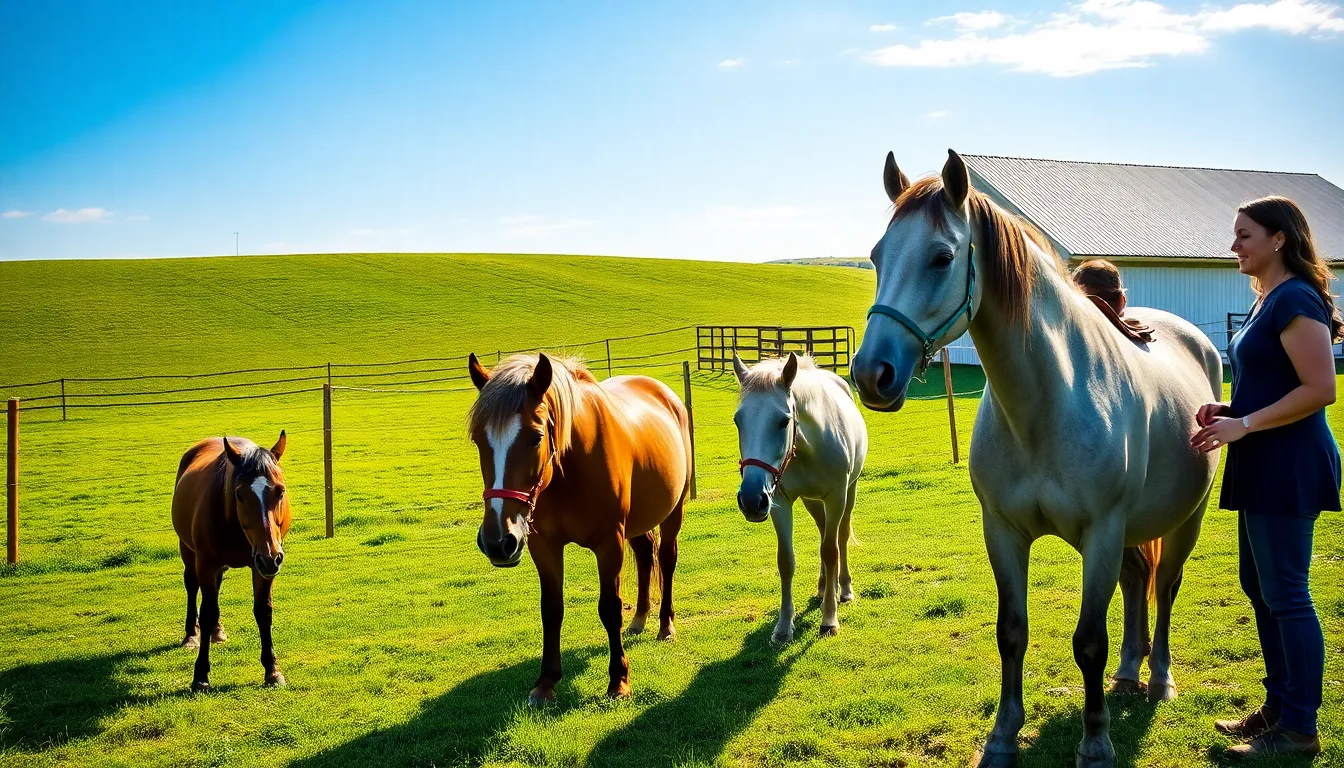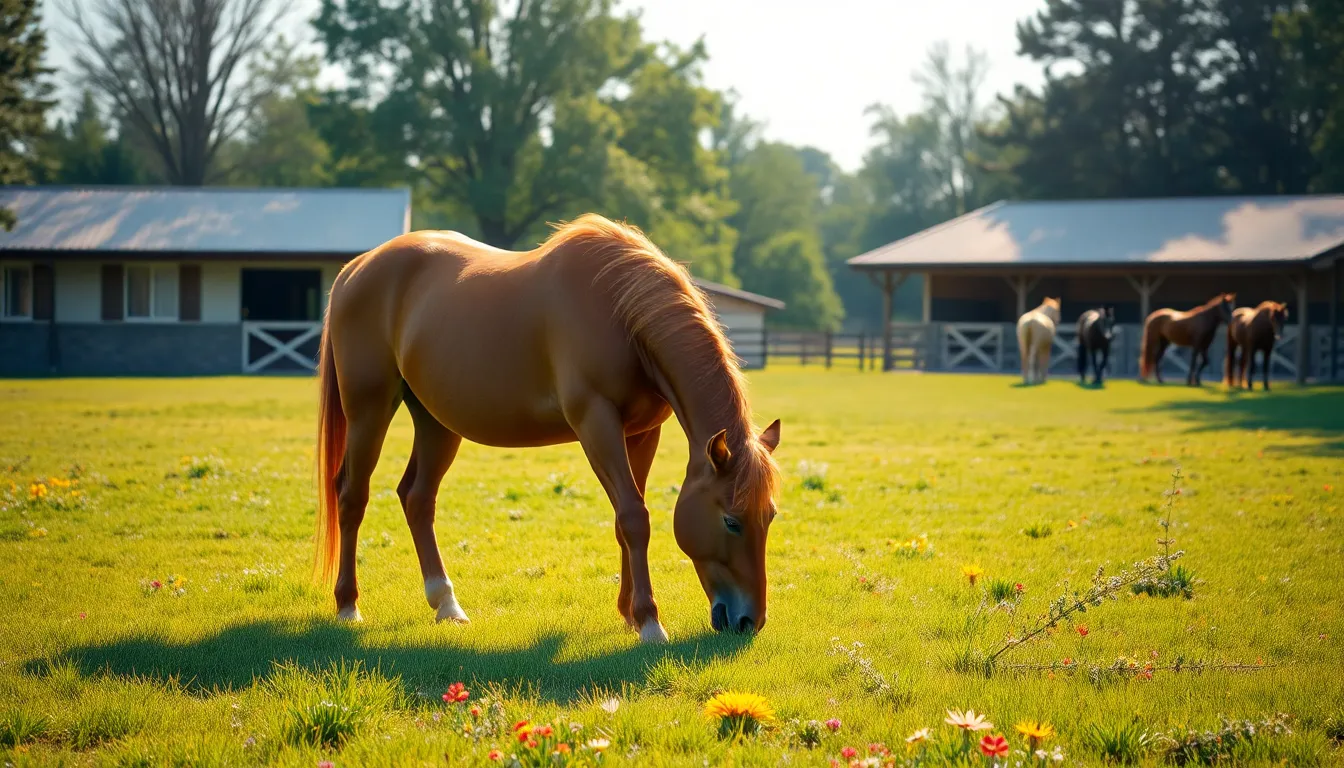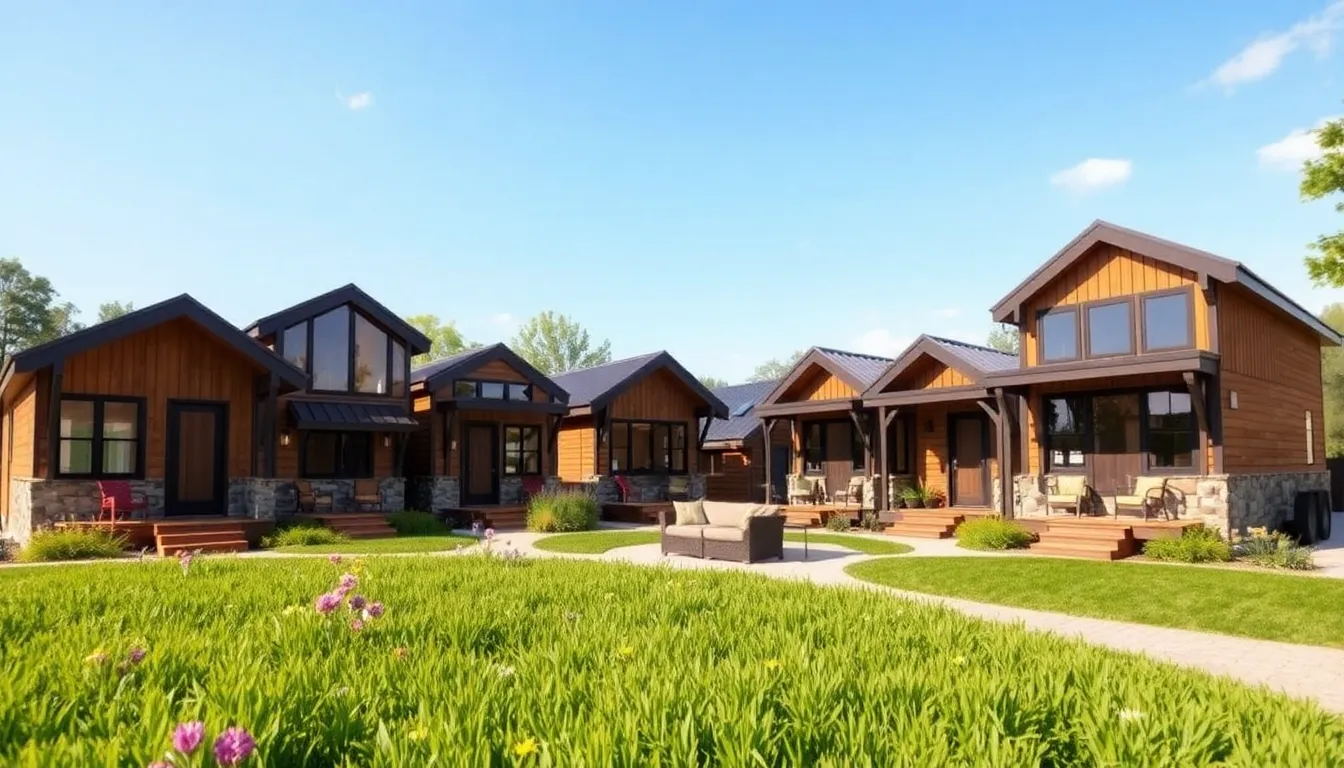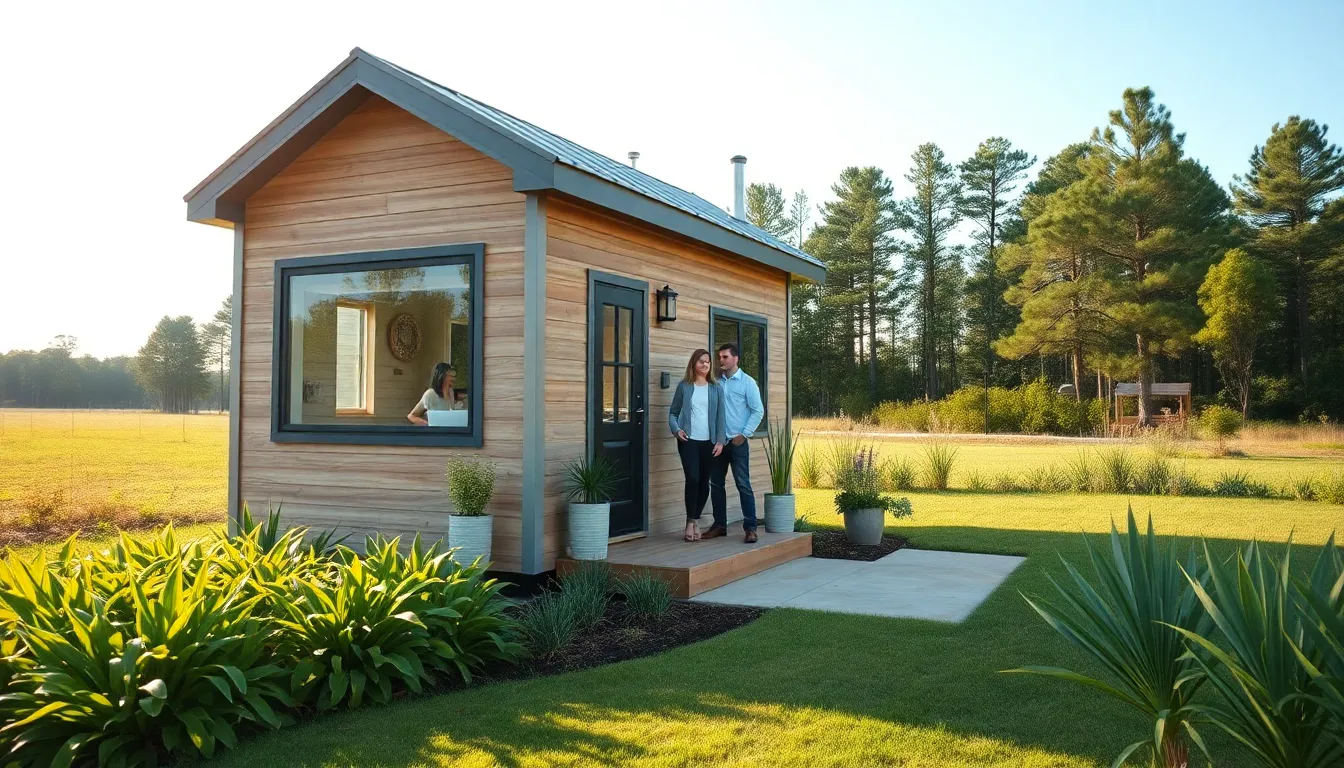Picture this: A horse galloping freely across a sunlit pasture, mane flowing in the breeze, without a care in the world. For many people, equine retirement homes provide this dream, not just for the horses, but also for their loving owners who want to ensure their hoofed companions live out their golden years in peace. It’s time to dig into this heartwarming topic (spoiler: it’s as noble as it sounds) and explore why retirement homes for horses are essential, beneficial, and utterly delightful. And hey, no one said retirement had to be boring.
Table of Contents
ToggleUnderstanding The Need For Retirement Homes

As horses age, just like humans, they may not be able to keep up with the rigorous demands of riding, competing, or hard work. Their joints can develop issues, their stamina declines, and overall, they deserve a break. Enter retirement homes, these sanctuaries specifically cater to equine elders, providing a safe haven where they can relax and enjoy their later years.
Many owners find it difficult to make the heart-wrenching decision to retire their beloved companions. Without a proper facility, these aging stars might face neglect or undesirable conditions. Retirement homes fill that gap, ensuring that seniors horses receive not just shelter but also the attention and care they need. Also, dedicated equine retirement homes help relieve the emotional burden from owners who might not be able to provide the special care that older horses require.
Benefits Of A Retirement Home For Horses
The perks of sending a horse to a retirement home go well beyond just gifting them a life of leisure. Imagine a daily schedule filled with grazing on lush grass, soaking up sunshine, and friendly neighs echoing in the distance. Here’s a deeper look at some key benefits:
- Peaceful Environment: Retirement homes often feature sprawling pastures and tranquil settings, allowing horses to relax in a stress-free environment.
- Tailored Care: Each horse has unique needs that change as they age. Staff members at retirement facilities are trained in equine geriatric care and provide tailored nutrition, medical support, and physical therapy.
- Socialization: Spending time with other horses and interacting with trained handlers enhances the quality of life for retired equines and promotes mental well-being.
- Stress Relief for Owners: Knowing their horses are in a safe and loving place gives owners peace of mind, allowing them to focus on their own lives while trusting that their horses are well cared for.
Selecting The Right Retirement Home
Choosing the right retirement home for a horse can feel like a monumental task. It’s akin to finding the perfect college for your kid, it’s all about aligning values, needs, and expectations. Here are some critical factors to consider when selecting a retirement home:
- Facility Condition: Pay a visit to inspect the facilities. Are the pastures spacious and lush? Check the fencing and housing conditions too.
- Staff Qualifications: Ensure the caregivers are experienced and knowledgeable about horse health and well-being. It’s vital they can recognize and tend to the needs of older horses.
- Reputation: Look into reviews and ask for recommendations. A reputable retirement home will have testimonials from previous clients praising their services.
- Activities and Care: Inquire about daily routines. A good facility doesn’t just provide shelter: they should mention interaction, engagement, and personalized care plans.
Services Offered At Retirement Homes
Retirement homes for horses are not merely a refuge: they often offer a plethora of services designed to ensure that these majestic creatures enjoy their twilight years to the fullest. Here’s an overview of what to expect:
- Veterinary Care: Regular health check-ups are crucial, and many retirement facilities have on-call veterinarians who can address any medical needs.
- Nutritious Diet Plans: Horses need a specialized diet as they age, and good retirement homes create suitable nutrition programs that cater to each horse’s individual requirements.
- Physical Therapy and Rehabilitation: Some facilities offer therapy to manage pain or mobility issues, improving the quality of life dramatically.
- Fun Activities: While it’s crucial for horses to relax, they also need stimulation. Many homes provide gentle exercise routines, socialization activities, and even pampering services like grooming.
Success Stories: Happy Horses In Retirement
Many horses have found happiness and contentment in retirement homes across the country. For example, take Bella, a spirited thoroughbred who graced racetracks in her heyday. After her retirement, she found residence at a local equine sanctuary where she now spends her days floating in a fresh pond and munching on grass. Bella’s owners can now visit her to enjoy picturesque moments together without the pressures of racing.
Then there’s Max, a gentle giant who, after decades of pulling carriages, was placed into a retirement home known for its compassionate care. He quickly adapted to the leisurely lifestyle and made friends with other retirees. Today, he enjoys lazy afternoons napping under trees, snuggled up next to his pals. These stories are merely glimpses of the many horses living fulfilling lives in retirement homes, a testament to the effectiveness of these facilities.
How To Support Equine Retirement Homes
Equine retirement homes rely heavily on community support, and there are several ways to get involved:
- Donations: Financial support is always welcome, whether it’s a one-time contribution or a recurring donation. Some facilities offer sponsorship programs, allowing individuals to fund a horse’s expenses.
- Volunteering: Many retirement homes are always in need of extra hands for feeding, grooming, or simply spending time with the horses. Volunteering can be a fulfilling experience for horse lovers.
- Awareness: Spread the word about the importance of equine retirement homes. Share success stories and promote the good work these facilities do within your community and online.







